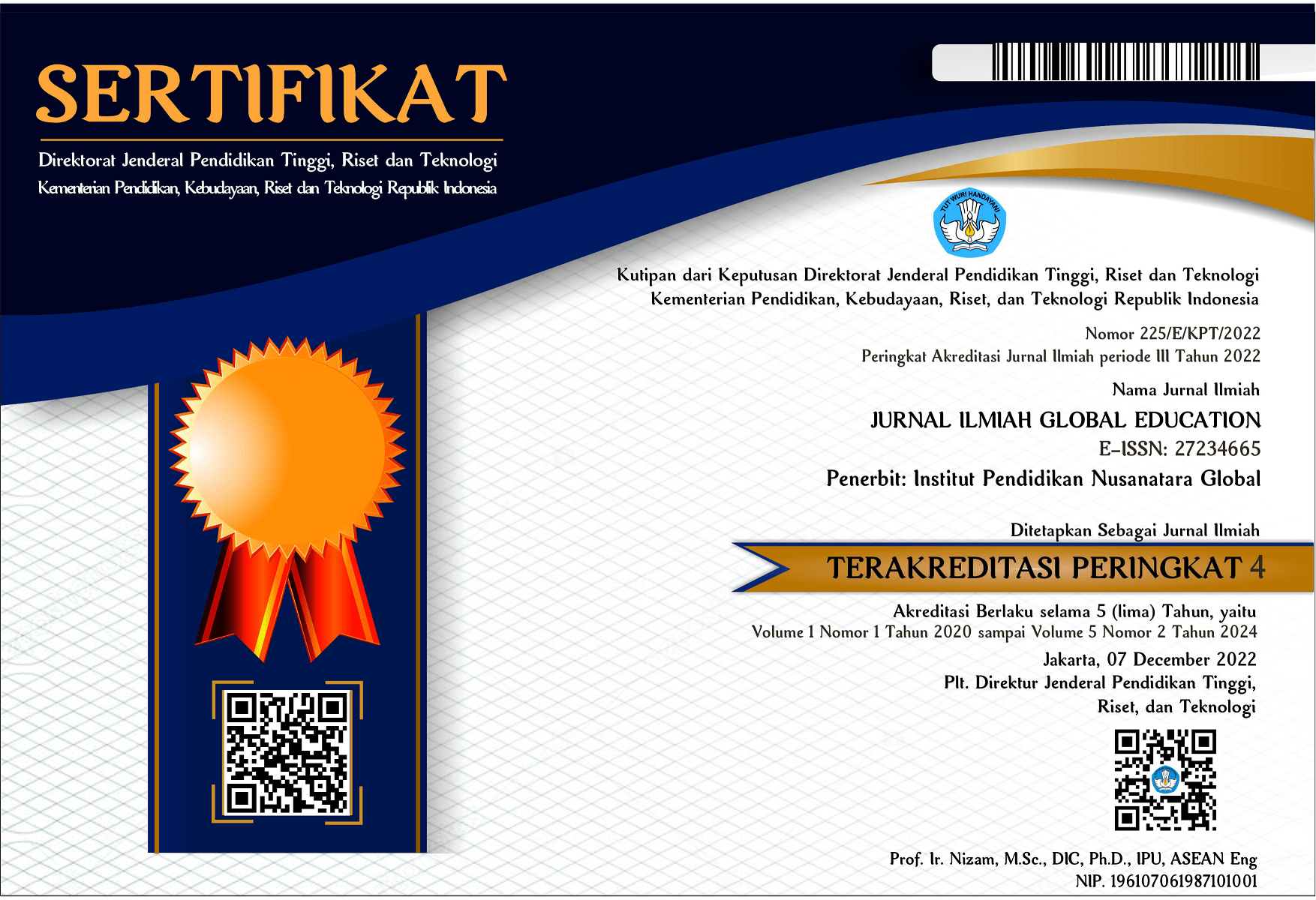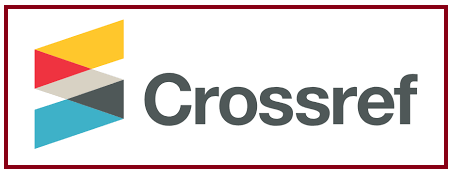Analisis Potensi Sumber Daya Manusia Dalam Bisnis Akomodasi Pondok Wisata Di Desa Wisata Besani
DOI:
https://doi.org/10.55681/jige.v5i1.2473Keywords:
Accomodation, Homestay, Human Resources, Rural Tourism, Tourism VillageAbstract
This research analyzes the potential of human resources in the accommodation business of pondok wisata or homestays in Besani Tourism Village, Blado District, Batang Regency, Central Java. Cottage tourism is a form of accommodation that offers more intimate lodging close to local communities, providing a different and satisfying experience for travelers seeking authenticity and togetherness in their journeys. The village stands out due to its concept of Javanese-Chinese cultural acculturation and attractive natural tourism potential. Through qualitative approaches and case studies, involving stakeholders as respondents, and utilizing primary data from interviews and observations, as well as secondary data from scientific literature and official documents. The SOAR approach is used to identify internal strengths, external opportunities, aspirations, and desired outcomes in accommodation business development. The analysis highlights the traditional skills of residents, significant tourism demand, and support from local government and companies. Human resource development strategies are recommended, including business management skills training, group-based cottage tourism development, service standard enhancement, income diversification, and local cultural promotion. This study provides insights into the potential of human resources to enhance competitiveness and sustainability in the tourism sector in Besani Tourism Village.
Downloads
References
Bachok, S., Hasbullah, H., & Ab Rahman, S. A. (2018). Homestay Operation Under The Purview Of The Ministry Of Tourism And Culture Of Malaysia: The Case Of Kelantan Homestay Operators. PLANNING MALAYSIA JOURNAL, 16(6). https://doi.org/10.21837/pmjournal.v16.i6.472
Çakar, K., & Aykol, Ş. (2021). Case Study as a Research Method in Hospitality and Tourism Research: A Systematic Literature Review (1974–2020). Cornell Hospitality Quarterly, 62(1), 21–31. https://doi.org/10.1177/1938965520971281
Campbell, S., Greenwood, M., Prior, S., Shearer, T., Walkem, K., Young, S., Bywaters, D., & Walker, K. (2020). Purposive sampling: complex or simple? Research case examples. Journal of Research in Nursing, 25(8), 652–661. https://doi.org/10.1177/1744987120927206
Cuka, P., Kruczek, Z., & Szromek, A. (2015, June 20). Observation As A Basic Qualitative Method In Tourism Research: Case Study Donovaly Slovakia. 15th International Multidisciplinary Scientific GeoConference SGEM 2015. https://doi.org/10.5593/SGEM2015/B21/S8.096
Doan, T., Aquino, R., & Qi, H. (2023). Homestay businesses’ strategies for adapting to and recovering from the COVID-19 pandemic: A study in Vietnam. Tourism and Hospitality Research, 23(2), 213–225. https://doi.org/10.1177/14673584221103185
Dryga, S., Aleksandrova, M., Goncharova, N., & Sanfirova, O. (2016). Sustainable tourism as a method of forming a tolerant society. SHS Web of Conferences, 28, 01065. https://doi.org/10.1051/shsconf/20162801065
Ernawati, N. M., Arjana, I. W. B., Puspita, N. P. L. A., Voda, M., & Hazra, S. (2022). Human resource development for rural tourism: a green tourism approach. International Journal of Green Tourism Research and Applications, 4(2), 50–57. https://doi.org/10.31940/ijogtra.v4i2.50-57
Gunawijaya, J., Akbar, P. N. G., & Ansori, S. (2016). Strategic Management for Rural Tourism Development in Wanayasa, Puwakarta, West Java, Indonesia. Journal of Indonesian Tourism and Policy Studies, 1(1), 24–33.
Hassan, T. H., Salem, A. E., & Abdelmoaty, M. A. (2022). Impact of Rural Tourism Development on Residents’ Satisfaction with the Local Environment, Socio-Economy and Quality of Life in Al-Ahsa Region, Saudi Arabia. International Journal of Environmental Research and Public Health, 19(7), 4410. https://doi.org/10.3390/ijerph19074410
Ismanto, S. U., Indira, D., & Santoso, M. B. (2023). Community Involvement Based on Community-Based Tourism Principles in the Development of Area-Based Tourism in Cirebon Regency. Jurnal Manajemen Pelayanan Publik, 6(2), 84. https://doi.org/10.24198/jmpp.v6i2.45278
Imam Ardiansyah, Ratna Gema Maulida. KAJIAN ATRAKSI, AMENITAS DAN AKSESIBILITAS UNTUK PENGEMBANGAN KEPARIWISATAAN DI TAMAN WISATA ALAM GUNUNG PANCAR KABUPATEN BOGOR. Jurnal Inovasi Penelitian, 4(1), 107-115.
Jamaludin, M., Othman, N., & Awang, A. R. (2012). Community Based Homestay Programme: A Personal Experience. Procedia - Social and Behavioral Sciences, 42, 451–459. https://doi.org/10.1016/j.sbspro.2012.04.210
Janjua, Z. ul A., Krishnapillai, G., & Rahman, M. (2021). A Systematic Literature Review of Rural Homestays and Sustainability in Tourism. SAGE Open, 11(2), 215824402110071. https://doi.org/10.1177/21582440211007117
Kemenparekraf. (n.d.). Desa Wisata Besani. Retrieved February 28, 2024, from https://jadesta.kemenparekraf.go.id/desa/besani
Khavarian-Garmsir, A. R., Stavros, J. M., & Saraei, M. H. (2017). Strategic Planning for Tourism Development With a Focus on Muharram Ceremony Using Soar Framework: A Case Study of Yazd Province in Iran. Event Management, 21(1), 119–129. https://doi.org/10.3727/152599517X14809630271311
Khavarian-Garmsir, A. R., & Zare, S. M. (2015). SOAR Framework as a New Model for the Strategic Planning of Sustainable Tourism. Tourism Planning & Development, 12(3), 321–332. https://doi.org/10.1080/21568316.2014.960595
L Dewi, I S Djunaid. (2019). MENINGKATKAN EKONOMI LOKAL MELALUI PARIWISATA PEDESAAN: STUDI KASUS DESA CISEENG. Jurnal Sosial Humaniora, 10(1), 19-27.
Leu, T. C. (2019). Tourism as a livelihood diversification strategy among Sámi indigenous people in northern Sweden. Acta Borealia, 36(1), 75–92. https://doi.org/10.1080/08003831.2019.1603009
Li, Y., Xia, L., Wang, L., Qiu, M., & Utomo, S. (2024). How Are Rural Homestays Achieving Sustainable Development in the Post-COVID-19 Period: Value Co-Creation by Operators, Tourists, and Government. Sustainability, 16(3), 1088. https://doi.org/10.3390/su16031088
Liu, Y.-L., Chiang, J.-T., & Ko, P.-F. (2023). The benefits of tourism for rural community development. Humanities and Social Sciences Communications, 10(1), 137. https://doi.org/10.1057/s41599-023-01610-4
Muliawanti, L., Sandy, F., & Zahra, A. A. (2023). Empowerment and human resource capacity building in Homestay Village Borobudur, Magelang. Community Empowerment, 8(10), 1506–1511. https://doi.org/10.31603/ce.10195
Niu, Y., Yee, C. M., & Yin-Fah, B. C. (2023). Weight Analysis of the Influencing Factors of Homestay Competitiveness in Rural Guangzhou, China. Journal of Architectural Research and Development, 7(2), 40–52. https://doi.org/10.26689/jard.v7i2.4774
Picken, F. (2018). 9. The Interview in Tourism Research. In W. Hillman & K. Radel (Eds.), Qualitative Methods in Tourism Research (pp. 200–223). Multilingual Matters. https://doi.org/10.21832/9781845416416-014
Sánchez-Ollero, J.-L., García-Pozo, A., & Mondéjar-Jiménez, J. (2022). Impacts of Environmental Sustainability Measures on Rural Accommodation. Journal of Hospitality & Tourism Research, 46(7), 1241–1256. https://doi.org/10.1177/1096348020986914
Selna Adesetiani, M Kolopaking, L., & Eriyatno, E. (2021). Strategi Pengembangan Usaha Wisata Homestay Berbasis Komunitas di Kabupaten Raja Ampat, Provinsi Papua Barat. Sodality: Jurnal Sosiologi Pedesaan, 9(3). https://doi.org/10.22500/9202136386
Sianipar, R., Situmorang, J. M. H., Goeltom, V. A. H., & Yulius, K. G. (2021). Factors Influencing Tourist Satisfaction and Revisit Intention to Cibuntu Tourist Village During COVID-19 Pandemic. JELAJAH: Journal of Tourism and Hospitality, 3(1), 12–24. https://doi.org/10.33830/jelajah.v3i1.1847
Son, N. T., Nguyen, Q. N., & Hoang, T. H. L. (2023). Factors Influencing Tourist Satisfaction With Agritourism In The Mekong Delta, Vietnam. GeoJournal of Tourism and Geosites, 49(3), 998–1005. https://doi.org/10.30892/gtg.49315-1099
Sofiani & Vivian O. (2021). PENGARUH ALUN-ALUN KOTA DEPOK TERHADAP PERKEMBANGAN PARIWISATA KOTA DEPOK. Jurnal Inovasi Peneliti, 1(9). 1837-1840. Sudarmayasa, I. W., Noor, M. F., Sukmana, E., & Uhai, S. (2020). Implementasi Standar Usaha Pondok Wisata di Desa Wisata Pentingsari, Yogyakarta. Jurnal Master Pariwisata (JUMPA), 322. https://doi.org/10.24843/JUMPA.2020.v07.i01.p15
Supian, K., Ahmad, A., Yunus, I. F. M., & Munir, A. N. (2022). Community-Based Homestay Activities: Sustainable Or Perishable Tourism? 1–11. https://doi.org/10.15405/epms.2022.10.1
Takaendengan, M. E., Setiawan, Y., Mansur, I., & Masyhuri, M. (2022). Socio-Cultural Factors on the Establishment and Development of Communal Homestay in Eco-Rural Tourism. Jurnal Manajemen Hutan Tropika (Journal of Tropical Forest Management), 28(2), 91–100. https://doi.org/10.7226/jtfm.28.2.91
Voon, B. H., Teck, W. J., Joseph, C., Hamzah, M. I., Jussem, P. M., & Ai, K. T. (2022). Homestay Service Experience for Tourist Satisfaction and Sustainability Amidst Covid-19 Challenges. International Journal of Business and Society, 23(2), 1127–1146. https://doi.org/10.33736/ijbs.4861.2022
Wiguna, I. M. A., Adhika, I. M., & Arida, N. S. (2018). Usaha Pondok Wisata Sebagai Pendukung Pariwisata Budaya Berkelanjutan di Desa Wisata Ubud. Jurnal Master Pariwisata (JUMPA), 227–240. https://doi.org/10.24843/JUMPA.2018.v05.i01.p12
Yulius, K. G. (2023). Acculturation of Javanese and Chinese Culture in Rural Tourism in Desa Wisata Besani. Advances in Tourism Studies, 1(3), 87–94. https://doi.org/10.47492/ats.v1i3.23
Zamzuki, F. A., Lola, M. S., Aruchunan, E., Muthuvalu, M. S., Jubilee, R. V. W., Zainuddin, N. H., Abdul Hamid, A. A. K., Mokhtar, N. A., & Abdullah, M. T. (2023). Assessing the sustainability of the homestay industry for the East Coast of Malaysia using the Delphi approach. Heliyon, 9(11), e21433. https://doi.org/10.1016/j.heliyon.2023.e21433
Downloads
Published
How to Cite
Issue
Section
License
Copyright (c) 2024 Sofiani, Kevin Gustian Yulius, Gracia Eugene Hardjasa

This work is licensed under a Creative Commons Attribution-ShareAlike 4.0 International License.













